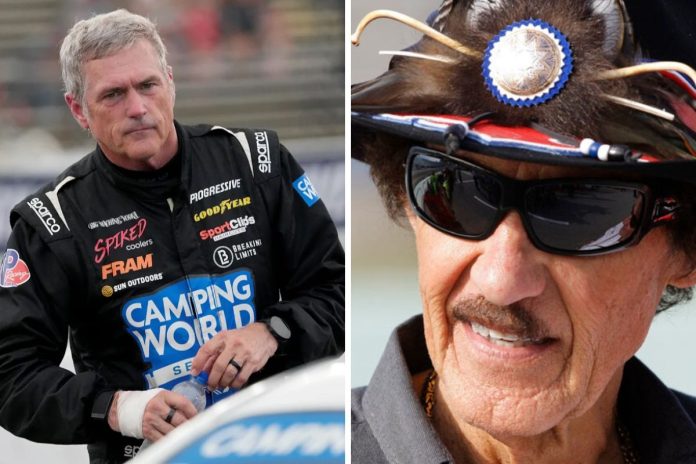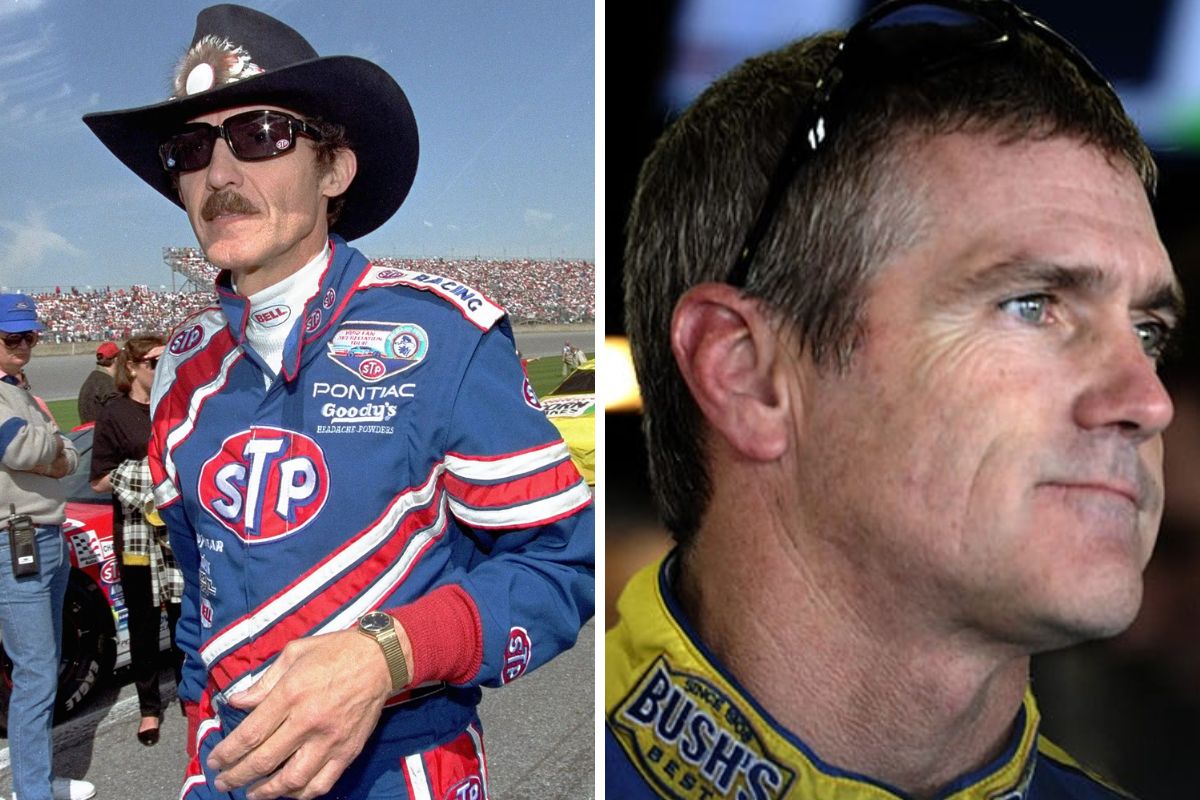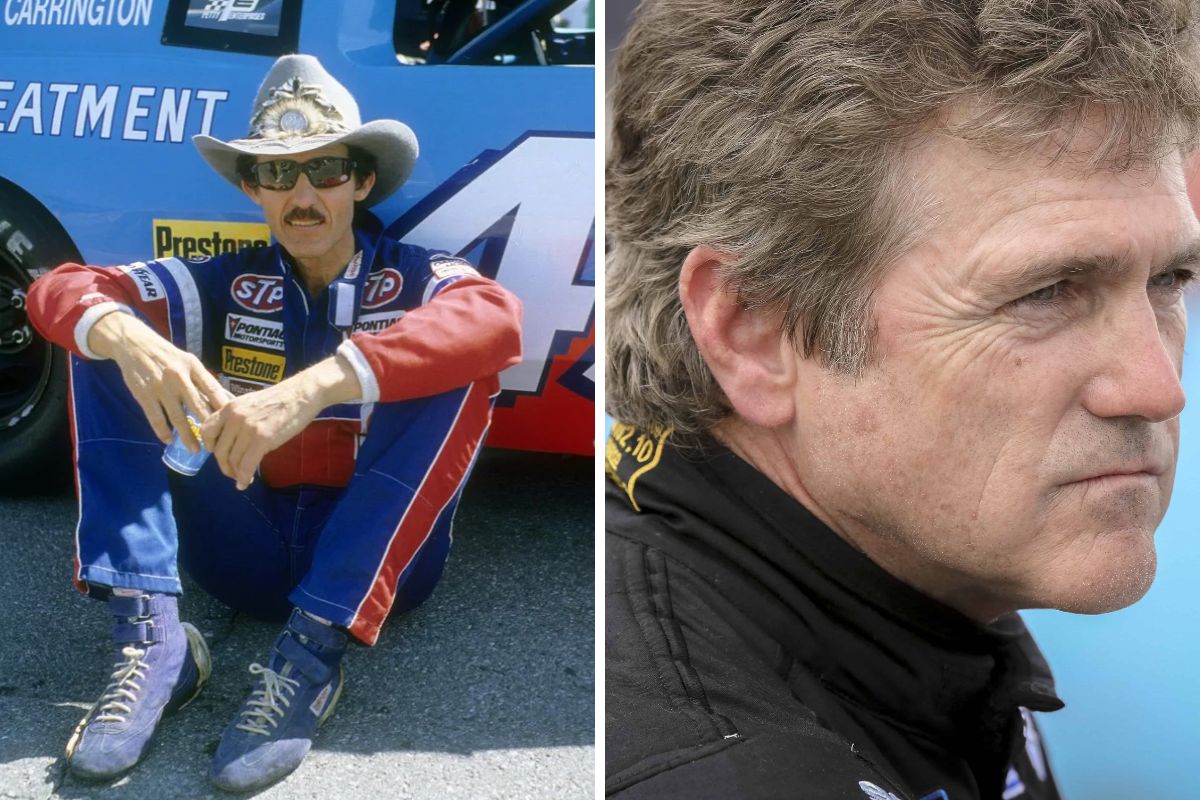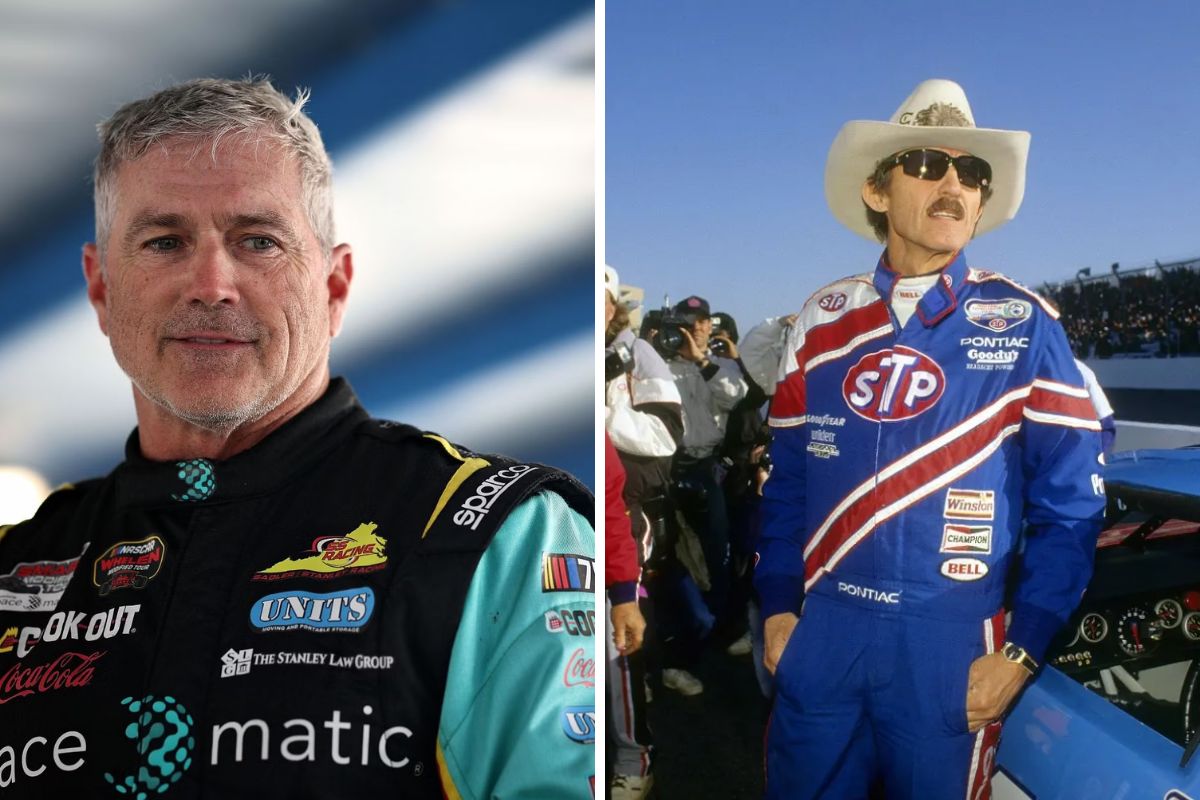Petty And Labonte’s Family Affairs: In NASCAR, few names resonate as profoundly as Petty and Labonte, whose legacies are not only built on speed and skill but also on the family dynamics that propelled them to greatness. Petty & Labonte’s shares a rare glimpse into the personal lives that shaped these motorsport titans, examining how their familial ties influenced their professional trajectories and the culture of racing itself.
Key Takeaways
- Richard Petty and Bobby Labonte valued family support in shaping their racing strategies.
- Family celebrations at victories deepened their bonds and shaped NASCAR’s family-centric culture.
- Involvement of Petty and Labonte families in various racing roles enriched their legacy.
- Family relationships fostered respect and camaraderie among drivers during NASCAR’s golden age.
- The success of Petty and Labonte helped solidify the role of family in creating enduring NASCAR memories.
NASCAR’s Evolving Identity
Amidst the shifting sands of modern sports culture, NASCAR with profound questions about its evolving identity and its adherence to the traditional values that once defined its legacy. As the motorsport giant navigates through contemporary challenges, it wrestles with maintaining its core essence while embracing necessary innovations. The fine balancing act is intricate, as stakeholders endeavor to reignite the passion that marked NASCAR’s golden era, yet results suggest a disconnect between nostalgic aspirations and current realities.
The evolution of NASCAR involves adapting to new technological advancements, changing audience demographics, and a competitive sports entertainment landscape. This shift entails not only updates in car technology and safety measures but also in how the sport markets itself and engages with a digitally-savvy fan base. The introduction of social media platforms, eSports, and interactive fan experiences are moves aimed at broadening NASCAR’s appeal among younger audiences who do not share the same live spectatorship habits as older generations.
However, this pivot towards modernization comes with its share of criticism. Long-standing fans express concerns that these changes may dilute the raw, unpolished charm of stock car racing, fearing the sport might lose its unique character in pursuit of broader appeal.
Family Values in NASCAR’s Golden Age
While NASCAR confronts the challenges of modernization and broader appeal, the golden age of the sport was marked by a strong emphasis on family values, with figures like Richard Petty exemplifying this era’s community spirit. Petty often spoke of victory celebrations as exclusive family gatherings.
The sport’s foundational family values extended beyond the racetrack, influencing how events were organized and how fans engaged with the sport. Victory lanes were scenes of familial jubilation, where drivers, their spouses, and children shared moments of triumph collectively.
Shared Memories: Richard Petty and Bobby Labonte
Richard Petty and Bobby Labonte recently shared profound memories from their racing careers, emphasizing the indispensable support they received from their families during victories. Their reflections, highlighted on a NASCAR-presented show before the Talladega race, not only depict their individual paths to glory but also shows the foundational role of familial bonds in their journeys.
Petty, often called as the ‘King’ of NASCAR, vividly recounted his 200th win at Daytona, a landmark victory that not only marked a professional milestone but also underscored the paramount support of his family throughout his career.
“Way back in the beginning of all the racing and stuff, the crews really didn’t come to the winner’s circle. It was just family, I think from that standpoint, NASCAR got to be known as a family affair. Because the winner was there with his family, that was where all the excitement was.”-Petty
Labonte, with a career equally distinguished, shared an emotionally charged anecdote of his 1996 victory at Atlanta, where his brother Terry played an essential role.
“As the race went on and it unfolded, I led some laps. Terry had asked me, he said, can I lead a lap or two so I can get the points? I’m like, yeah, sure. I always kept track of where Terry was during the race, and sure enough, towards the end, Jimmy Makar was like. We won the race and Terry finished, I think, sixth but won the points.”-Labonte
Milestones and Memories
Reflecting on the milestones that have defined NASCAR, none is more suggestive
than Richard Petty’s 200th career win, a victory that occurred under the watchful eyes of a sitting U.S. president and solidified Petty’s legendary status. This historic event at the 1984 Firecracker 400 not only marked a personal triumph for Petty but also a pivotal moment in NASCAR’s journey into the national consciousness. The presence of President Ronald Reagan, enjoying the race from the Petty family’s pit box, elevated the significance of the win, intertwining sportsmanship with national pride.
“The big deal, I guess, was really winning the 200th race in front of the President of the United States.” Richard further detailed the trickery and tactics he applied to get the better of Yarborough. “The reason I beat him basically was that I had him on the outside and the second groove down was shorter; it was just that much shorter, and that was enough to beat him.”-Petty
| Aspect | Detail |
|---|---|
| Date | July 4, 1984 |
| Event | Firecracker 400 |
| Location | Daytona International Speedway |
| Opponent | Cale Yarborough |
| Significance | 200th win, witnessed by U.S. President Ronald Reagan |
The Search for Modern Superstars
The pursuit of a modern superstar in NASCAR continues, as the sport seeks to match the legacies of its past legends with fresh, compelling talent. This ongoing quest is not merely about finding a skilled driver; it’s about discovering a charismatic ambassador who can resonate with both long-time enthusiasts and new audiences.
- Generational Shift: Today’s potential superstars are emerging in a radically different context, with advancements in technology and changes in fan engagement.
- Diverse Talents: NASCAR is increasingly embracing drivers from varied backgrounds, expanding its appeal and diversifying its hero pool.
- Media Savvy: Modern drivers must now be adept not only on the track but also in their media interactions and personal branding.
- Sponsorship Dynamics: The role of sponsorships has evolved, affecting how drivers are promoted and perceived in the public eye.
- Youth Movement: There’s a strong push to lower the average age of drivers, bringing younger talents into the spotlight sooner.
News in Brief: Petty And Labonte’s Family Affairs
Petty & Labonte’s share a compelling glimpse into the familial underpinnings that have shaped NASCAR’s cultural and competitive landscape. By examining the relationships and mutual support systems within the Petty and Labonte families, highlights the collective ethos that propels the sport forward, underscoring the indispensable role of family in the world of motorsports.
Our Reader’s Queries
Q. How do you spell Bobby Labonte?
A. Bobby Labonte’s NASCAR journey is a tale woven into the very fabric of the sport. Emerging onto the scene in 1990, Labonte swiftly etched his name into racing lore with a full-time debut in what we now know as the Xfinity Series. The year 1991 marked a pivotal moment as he clinched his maiden NASCAR title, conquering the Busch Series championship while piloting his own creation under Labonte Motorsports’ banner. Subsequently, in 1993, Labonte embarked on a new chapter, transitioning to the Cup Series with Bill Davis Racing. His path illustrates not just the evolution of a driver, but the enduring spirit and legacy of NASCAR itself.
Q. Who is related to Richard Petty?
A. Hailing from the heart of racing country in Level Cross, North Carolina, Petty’s roots run deep in the sport. Born into a family steeped in NASCAR tradition, he is the son of Elizabeth Petty (née Toomes) and the renowned NASCAR driver Lee Arnold Petty. Adding to the racing lineage, Petty is also the esteemed elder sibling of NASCAR personality Maurice Petty. This rich heritage underscores Petty’s connection to the sport’s history and his integral role in shaping its legacy, embodying the essence of NASCAR’s enduring spirit across generations.
Q. How many cup wins did Bobby Labonte have?
A. Labonte stands tall among NASCAR’s elite, adorned with a tapestry of achievements that solidify his place in racing lore. Boasting an impressive tally of 21 Cup Series victories, his triumphs include three coveted crown jewel races: the prestigious Coca-Cola 600 at Charlotte Motor Speedway, the historic Brickyard 400 at Indianapolis Motor Speedway, and the revered Southern 500 at Darlington Raceway. These wins not only embellish Labonte’s legacy but also exemplify his prowess on the track, etching his name into the annals of NASCAR history with each thrilling victory lap.
Q. What does Bobby Labonte do now?
A. Robert Allen Labonte, born on May 8, 1964, epitomizes the essence of American stock car racing. A stalwart of the sport, Labonte is a semi-retired professional driver who now lends his expertise as an analyst for NASCAR on Fox. Despite his reduced racing schedule, Labonte continues to make waves on the track, competing part-time in the SMART Modified Tour. Behind the wheel of the No. 18L machine, fielded by Hermie Sadler and Bill Stanley, Labonte showcases his enduring passion for competition. Notably, Labonte’s crowning achievement came in 2000 when he clinched the NASCAR Cup Series championship, etching his name among the sport’s legends.
ALSO READ: Richard Petty’s Epic Encounter: Facing Dale Earnhardt at Martinsville





